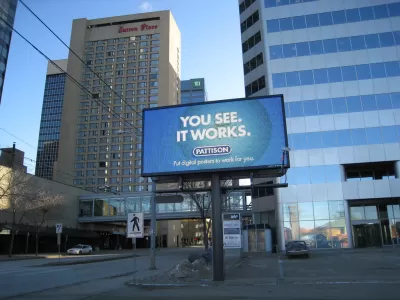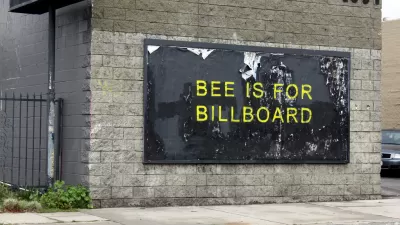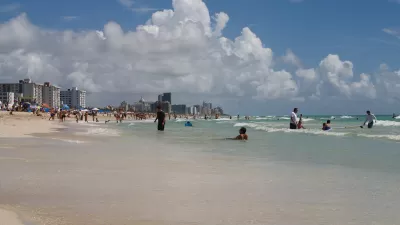Overruling an earlier appeals court decision, the New Jersey Supreme Court has found one township's prohibition on digital billboards to be unconstitutional.

Brian J. Connelly, writing in the Rocky Mountain Sign Law blog, reports that a September ruling [pdf] by the New Jersey Supreme Court has found that an attempt to prohibit a digital billboard by Franklin Township is unconstitutional. The case revolved around the township's rejection of a proposal to install a digital billboard adjacent to a nearby interstate highway. Because the township had allowed static billboards in the same vicinity, the applicant sued, with the case eventually coming before the State Supreme Court. The court found that the rejection of the digital billboard was content neutral, however the township had failed to provide supporting evidence on why the digital billboard was less aesthetically attractive and more dangerous than the static signs.
...the court found that the township provided “no basis to discern how three static billboards are more aesthetically palatable than a single digital billboard.” The court also found that the township’s staff planner failed to identify specific literature regarding the safety of digital billboards and that the township’s recitation of traffic crash data near the site of the proposed digital billboard did not do a sufficient analysis of causation of crashes. In the course of its discussion of the analysis performed by the township, the Supreme Court referred to “a record founded only on unsupported suppositions, fears, and concerns,” and stated that a “more robust factual record in support of the cited government interests deemed substantial” might pass constitutional muster.
FULL STORY: New Jersey Supreme Court: Digital Billboard Ban Unconstitutional

Planetizen Federal Action Tracker
A weekly monitor of how Trump’s orders and actions are impacting planners and planning in America.

Restaurant Patios Were a Pandemic Win — Why Were They so Hard to Keep?
Social distancing requirements and changes in travel patterns prompted cities to pilot new uses for street and sidewalk space. Then it got complicated.

Map: Where Senate Republicans Want to Sell Your Public Lands
For public land advocates, the Senate Republicans’ proposal to sell millions of acres of public land in the West is “the biggest fight of their careers.”

Maui's Vacation Rental Debate Turns Ugly
Verbal attacks, misinformation campaigns and fistfights plague a high-stakes debate to convert thousands of vacation rentals into long-term housing.

San Francisco Suspends Traffic Calming Amidst Record Deaths
Citing “a challenging fiscal landscape,” the city will cease the program on the heels of 42 traffic deaths, including 24 pedestrians.

California Homeless Arrests, Citations Spike After Ruling
An investigation reveals that anti-homeless actions increased up to 500% after Grants Pass v. Johnson — even in cities claiming no policy change.
Urban Design for Planners 1: Software Tools
This six-course series explores essential urban design concepts using open source software and equips planners with the tools they need to participate fully in the urban design process.
Planning for Universal Design
Learn the tools for implementing Universal Design in planning regulations.
Heyer Gruel & Associates PA
JM Goldson LLC
Custer County Colorado
City of Camden Redevelopment Agency
City of Astoria
Transportation Research & Education Center (TREC) at Portland State University
Camden Redevelopment Agency
City of Claremont
Municipality of Princeton (NJ)




























